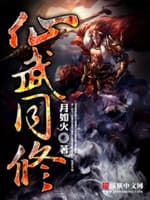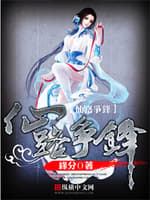Necromancer: I Am A Disaster
Chaotic Sword God
Apocalypse Gacha
Martial Cultivator
Aspiring to the Immortal Path
Snow-Kissed Rose (GL)
Horror Game Designer
Nightmare Assault
I’ll Take That Opportunity
The Hero Turned Into A Potato And The World Fell To Ruin
The Defeated Saintess Is On A Journey To Tame The Evil God
Conquering OtherWorld Starts With a Game
Horror Game Designer
Chapter 527: Wang Pingan
Apocalypse Gacha
Chapter 1507- Person to tell Cloud Peak's king to scram
Apocalypse Gacha
Chapter 1506- Different price for different people
I’ll Take That Opportunity
Chapter 34 – Deviant Devil Invasion
Snow-Kissed Rose (GL)
Chapter 89.2
Martial Cultivator
Chapter 760.3: Why Are Women All Like This - Part 3
Chaotic Sword God
Chapter 3894: Lan Caidie
Horror Game Designer
Chapter 526: Whose Child are You?
Apocalypse Gacha
Chapter 1505.5- Three piece purple
Necromancer: I Am A Disaster
Chapter 472 – There Won’t Be Another Chance
Aspiring to the Immortal Path
Chapter 1103: Cannon Fodder
Apocalypse Gacha
Chapter 1505- Three piece purple
I’ll Take That Opportunity
Chapter 33 - The Treasure Hunt Concludes
Martial Cultivator
Chapter 760.2: Why Are Women All Like This - Part 2
Nightmare Assault
Chapter 402: Painting and Illustration
Horror Game Designer
Chapter 525: Missing Door
Apocalypse Gacha
Chapter 1504- Frenzied collection
Snow-Kissed Rose (GL)
Chapter 89.1
Conquering OtherWorld Starts With a Game Chapter 153.2: Two-Copper Hypermarket
In a place Walton couldn't see… a male clerk, sweating profusely, stopped his bicycle in an alley behind the two-copper shop.
After propping up his bike against the wall, the male clerk hastily grabbed the thick canvas bag tied to the bicycle frame and hurried into the shop's back door. "Hurry, bring all the copper and silver coins, the town hall is running out!"
"Coming, coming," two equally sweaty male and female clerks replied, struggling to carry a heavy cash box over.
After quickly sorting the coins in the box with a wooden coin-counting mold, the female clerk wiped her sweat and took out a ledger. "That's 180 silver coins and 2,800 copper coins in total. Please sign the receipt."
The male clerk signed, and the three exhausted clerks together stuffed the full box of copper and silver coins into the canvas bag, tied it to the bicycle frame, and the male clerk wobbled back to the town hall with the money on his bike…
"We spent the whole day just counting money," the female clerk, who was keeping the accounts, joked with her colleague as she put away the ledger. "When I was a kid, I dreamed of counting money all day, but I now know that it's also tough work."
The male clerk chuckled. "Totally, these coins are really heavy."
Casual jokes aside, the two still skinny clerks once again plunged into the battlefield that was the two-copper hypermarket…
The merchandise of the two-copper store was bought "wholesale" from Yang Qiu by Rex.
These necessities from factories back on Earth mostly cost between one and two RMB to produce, and when introduced into the two-copper hypermarket of OtherWorld, they served not only to make a profit but also to undertake the crucial task of recycling copper coins and ensuring currency circulation in Weisshem.
After all, money only had value when it circulated; if locals earned money but buried it in the ground in a jar, it became worthless.
However, the main reason was that although Zhao Zhenzhen and her leisure players earned a large amount of gold coins, which could settle all of Weisshem taxes, the town still lacked copper and silver coins. Gold coins, being too high in denomination, were not practical in the purchase of grain from farmers.
Without enough products to recycle the money circulated among the people, the town hall would face a currency shortage.
Like these necessities, eggs were also meant to carry the burden of currency circulation.
The town's chicken and duck hatcheries currently only supplied a large number of chicks and ducklings, offering people the option of farming to supplement some meat consumption, far from mass egg production. So… the eggs sold in the egg store actually came from various poultry farms in G Province of China.
One might ask: to what extent was the saturation of the egg market in China? The constant stream of scam groups desperately pulling in people was a clear indicator. China's chicken stock and egg production accounted for 39.25% and 42.04% of the world's total, respectively, but the export proportion was very low, only 0.5%, with the vast majority of eggs from poultry farms relying on domestic sales.
Since 2015, China's egg market had been saturated to the point of supply and demand imbalance. During the Spring Festival of 2015, the "price" of eggs in some areas even fell below four RMB per half kilogram.
When Yang Qiu expressed interest in purchasing a large quantity of eggs without concern for size, requiring no free-range eggs, and even accepting older eggs, the meat processing factory's salesperson nearly wanted to fall to his knees and kiss Yang Qiu's feet…
Of course, even if the main function of these products appearing in the Weisshem market was to regulate currency, the influx of these goods had a tremendous impact on local life, especially the large number of cheap eggs.
Even someone like Walton, biased against Weisshem, had to admit this fact.
In most towns of this world, malnutrition was a widespread issue; it was rare to see any overweight people on the streets.
After the bountiful autumn, winter would follow.
Even though the Rhine Kingdom was located in the southern part of central Navalon, with a not-so-long winter, it was still the most challenging time of the year for the lower class suffering from chronic malnutrition—even more difficult than the fourth and fifth months where they would go hungry.
Cheap eggs, at a copper for a handful, along with hunger-relieving dry noodle squares (unflavored instant noodles) available for two copper coins for a pack of four could save countless lives.
Just these two types of life-saving goods could bring Weisshem an immense, invaluable intangible asset—the people's trust.
And public trust was the most important form of wealth for any ruler, in any plane, country, or region.
As the people of Weisshem joyfully enjoyed an autumn more delightful than any before, the neighboring city of Indahl presented a starkly different scene.
Just two hundred meters east of the mule and horse market outside the north gate of Indahl, a large expanse of slums made of rudimentary wooden shacks could be seen.
These densely packed huts, adjacent to the city of Indahl yet not part of it, were inhabited by people not acknowledged as fellow cityfolk by the citizens of Indahl. Likewise, these residents were not required to pay the head tax based on the eldest male's income, as they hardly had any money. Their greatest assets were shacks made of wood, stones, mud, bamboo, and straw mats.
Moreover, these people didn't pay agricultural taxes, as they owned no land.
Those living in this slum included dispossessed farmers—those who had failed to pay the local lord's grain tax or other debts, resulting in their lands being taken.
Others were servants, laborers, or workers who were dismissed due to old age, disability, illness, or misconduct, leaving them destitute. Some were criminals with disreputable records—thieves, assailants, or others with negative histories, making it hard to find formal work in the city. And there were the poor, who, unable to afford housing in the city, were forced to retreat to the outskirts.
Every autumn, the able-bodied among these slum residents would band together, much like some townsfolk in Weisshem, to work as seasonal laborers in the surrounding countryside, striving to save enough to survive the winter.
By the tenth month, these seasonal workers would gradually return, carrying money and some grains given by their employers—perhaps a half-bag of wheat, a bag of potatoes, or corn.
Today, a group of such workers returned to the slum.
Johan, who had labored in the fields for most of the autumn, appeared blackened and gaunt from the relentless toil. The full sack of corn he carried on his shoulder weighed him down, but he hurried along, frequently glancing toward the slum.
Many were waiting in front of the slum, and upon spotting the returning workers, they stood up to look.
Johan, leading the group, was recognized by his younger brother who joyfully shouted, "Brother!" and ran toward him with open arms.
Like his companions who had also returned home with considerable earnings and grains, Johan was warmly welcomed by his family.
"You should rest at home for the next few days," Johan's mother advised, handing him clean clothes to change into and quickly opening a cabinet to fetch a wooden bowl, which she filled with water.
"Got it, Mom." Johan obediently changed and excitedly told her, "Uncle Dak's harvest was good this year. After settling the wages, he gave me an extra bag of corn. We can braid and dry it, then grind it at the city mill when the weather gets cold, and we'll have corn porridge."
His mother nodded with a smile. Seeing no one passing by outside, she swiftly lifted the clothes piled at the bed's head, revealing a small hidden bag. She pinched a few grains of salt from the bag and sprinkled them into the wooden bowl.
Johan was initially puzzled by what his mother added, but after taking a sip, he exclaimed in surprise, "Th-this is… Mom?"
His mother did a shushing gesture, lowered the grass mat at the entrance, and closed the wooden door before whispering, "Keep your voice down."
Johan quickly lowered his voice. "Mom, where did this salt come from?"
"A kind gentleman gave it," his mother said, showing him the small bag of salt. "Look, such good salt, this bag can last us a long time if used sparingly."
Johan took a closer look. By the faint light streaming through the window, he noticed that the salt was very white and fine, far superior to what was sold in city grocery stores. He gasped. "Who gave you such good salt? Why would he give us salt?"
"Just someone I've never seen before." His mother shook her head, lowering her voice even more. "The man appeared just last night… quite late, carrying a large backpack.
"I was asleep when I heard someone knocking on our door, and then something being pushed through the window. When I looked, it was this bag of salt.
"I quietly opened the door to look and saw him… He was wearing a large cloak, carrying a big backpack, knocking on doors, and pushing salt through each household's windows.
"I saw him, and he saw me. He was very tall but friendly. He put a finger to his lips, gesturing to me to keep quiet…
"In the morning, I went around asking, and all the households in our area received salt… Everyone's calling him 'Salt Man.' I don't know if he'll come again."
Johan took the salt from his mother's hand. There wasn't a lot of salt in the bag, approximately 100 grams.
Although it wasn't much, such fine salt could last their family for a month when used sparingly.
"What kind of person would give people like us salt?" Johan was filled with doubt. As his mother gestured for him to hide the salt back under the clothes pile, he muttered to himself resolutely, "At night, I have to see for myself what sort of person this Salt Man is."
Novel Notes
Special thanks to Tetra editing
——————————————————————————————
Kofi: https://ko-fi.com/beetlebarker
Patreon: https://www.patreon.com/beetlebarker
BeetleBarker's Discord: https://discord.gg/bEr3QYN
Checkout my other novels:
I'm Really Not The Demon God's Lackey
The Hero Turned Into A Potato And The World Fell To Ruin















